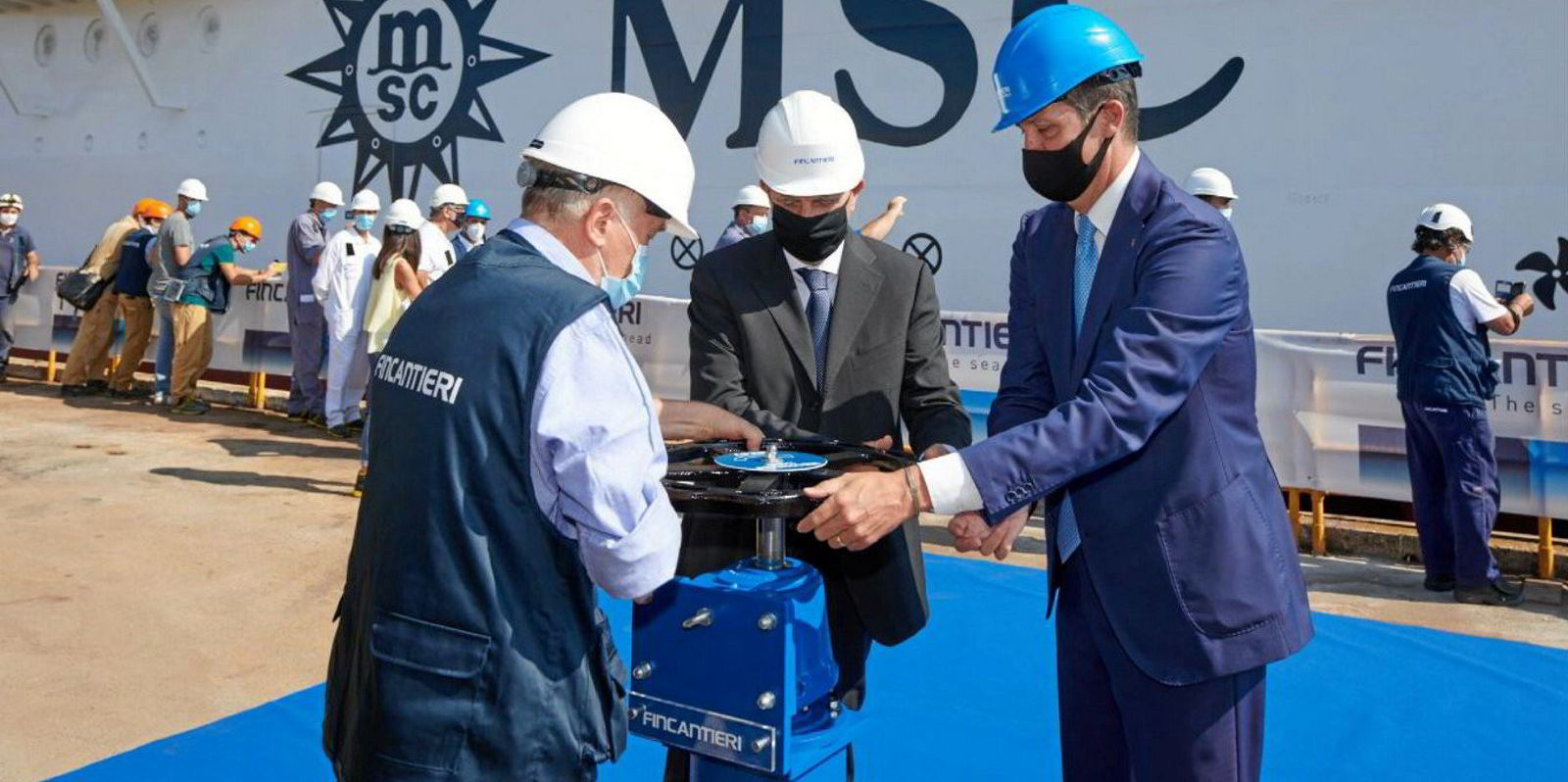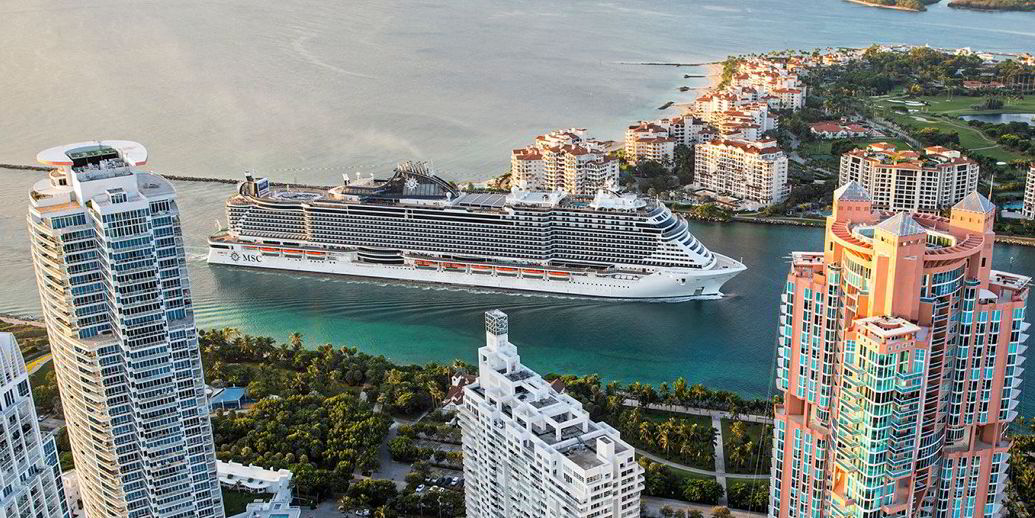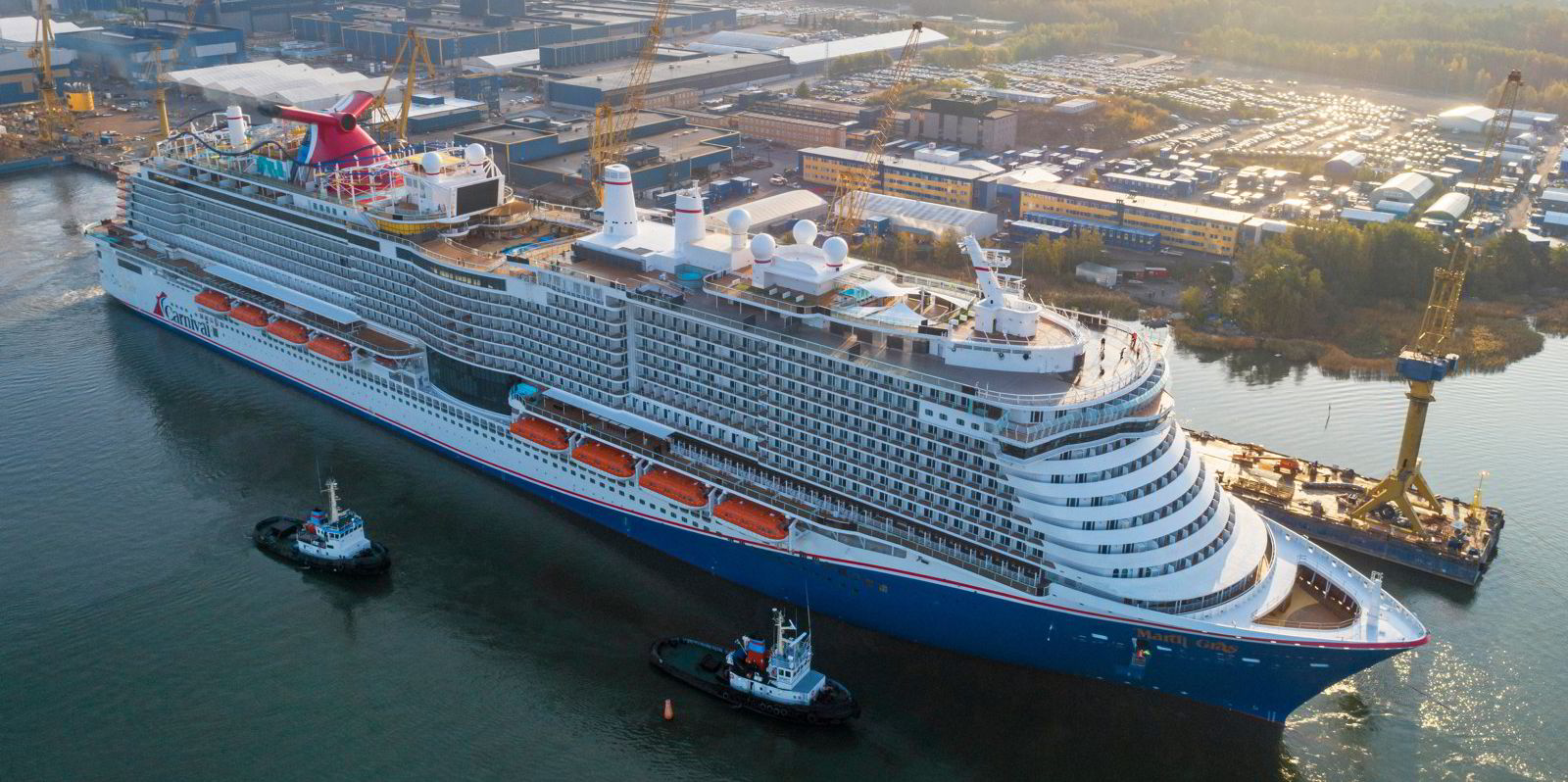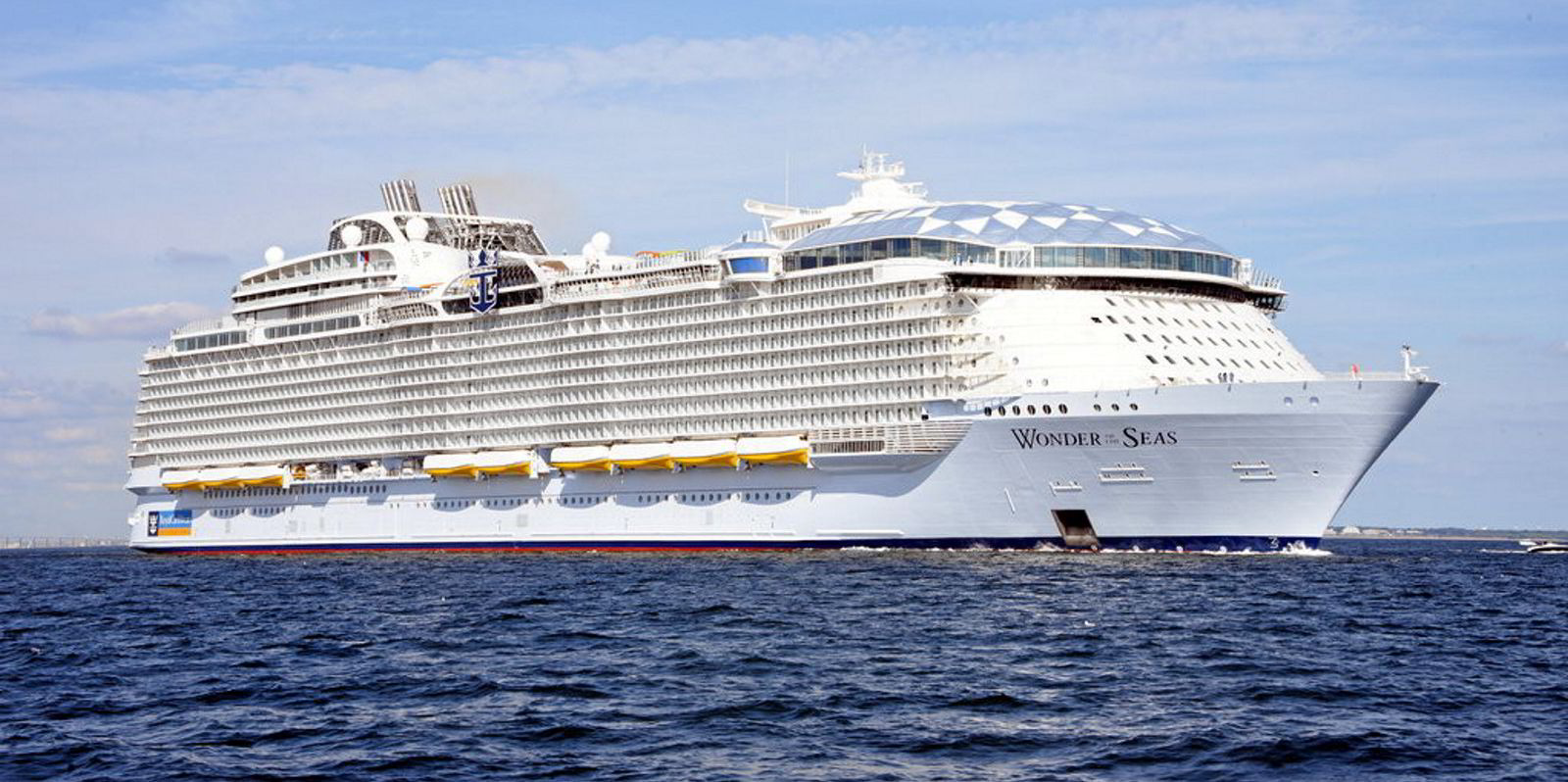The pandemic brought a conveyor belt of cruise orders for European shipbuilders to a grinding halt.
The impact was hardest felt in Germany, where an annual survey by trade union IG Metall concluded that more than 1,500 jobs were lost in the past year.
About one in three of 43 companies expect further job cuts, with the hardest-hit areas being the cruise shipbuilding facilities in northern Germany.
Shipyards belonging to MV Werften in Rostock, Stralsund and Wismar, as well as Neptun Werft in Rostock, slashed their workforces from 3,075 to 2,187 in the 12 months to September.
The malaise shows signs of spreading, with talks between unions and management of Meyer Werft, Germany's largest builder of cruise ships, over the future of 450 jobs.
That paints a grim picture for cruise shipbuilding in Europe. It continues a theme set at the start of the year with the collapse of a bid by Italy's Fincantieri to take over French rival Chantiers de l'Atlantique.
The failure to build a European shipbuilding champion was blamed on the pandemic's effect on the cruise sector.
The situation culminated in April with the chief executives of five leading European shipbuilders — Fincantieri, Meyer Werft, Lurssen Werft, Chantiers de l'Atlantique and Damen Shipyards — sending an open letter to the European Commission urging it to act against unfair competition from foreign subsidies.
The sun also rises
Despite its appearance as a sunset industry, there are glimmers of light on the European shipbuilding horizon.
Fincantieri, the world's largest cruise shipbuilder, has weathered the pandemic-inspired lull in cruise orders reasonably well, according to general manager Fabio Gallia.
No cruise orders were cancelled throughout the pandemic. In addition, conversations between the yard and its customers have resumed, although that has not yet translated into orders.

So the lesson gleaned by Europe's shipyard bosses has been to avoid putting all their eggs into a basket designated for the cruise sector.
Cruise still accounts for more than half of Fincantieri's revenues. But the company is taking a fresh look at new shipbuilding avenues and sees geographical diversification as a way forward, Gallia told a third-quarter earnings call in November.
"We diversified in terms of products, in terms of clients, creating synergies across different geographies and business units," he said.
Container ships built in Europe again
That approach is not unique to Italian yards. In Germany, shipyards are having to consider building vessel types that have not been built there for many years, according to IG Metall.
Small container ships are again seen as a possibility, with the revived Flensburger Schiffbau-Gesellschaft (FSG) shipyard reportedly in the market for a possible boxship order.
IG Metall estimates that more than half of all shipyards in Germany are working on expanding their product portfolio to include offshore service vessels, yachts and emissions-free ships.
The union also sees good prospects in green energy schemes for the offshore wind industry and in the transport of alternative fuels.
"Germany and Europe must play a pioneering role here and must not leave the future of shipbuilding to China, [South] Korea and other Asian countries alone," said Daniel Friedrich, district manager of IG Metall Coast.
Fincantieri has already made a successful diversification through its Norwegian subsidiary Vard into the offshore sector.
Vard has orders for eight service operation vessels (SOVs) — four of which were booked in the third quarter of the year — of a total of 18 units ordered worldwide.
The company is building or converting the SOVs across facilities in Norway, Romania and Vietnam.

"We are becoming a market leader in this specific area," Gallia commented.
Fincantieri remains in the enviable position of having forward cover for several years, with a backlog of 31 cruise ships to be delivered from the fourth quarter of 2021 through to 2027.
The total backlog, including cruise, defence and offshore and specialised vessels, numbers 110 units.
And the shipbuilder is increasingly optimistic about the prospect for cruise.
In July, it delivered the 5,877-passenger, 169,400-gt MSC Seashore (built 2021), the largest cruise ship ever built in Italy.
Its sistership, MSC Seascape, was floated out of Monfalcone in the Adriatic on 18 November and is due for delivery next November.
"We have continued with our ambitious newbuild plans, in spite of the pandemic," said MSC Cruises executive chairman Pierfrancesco Vago.








